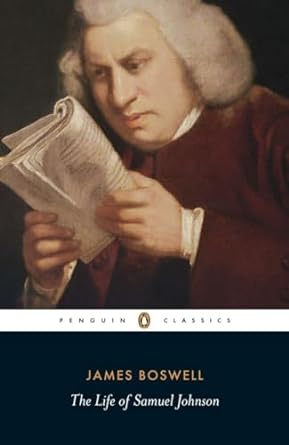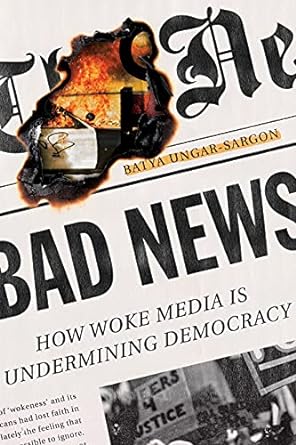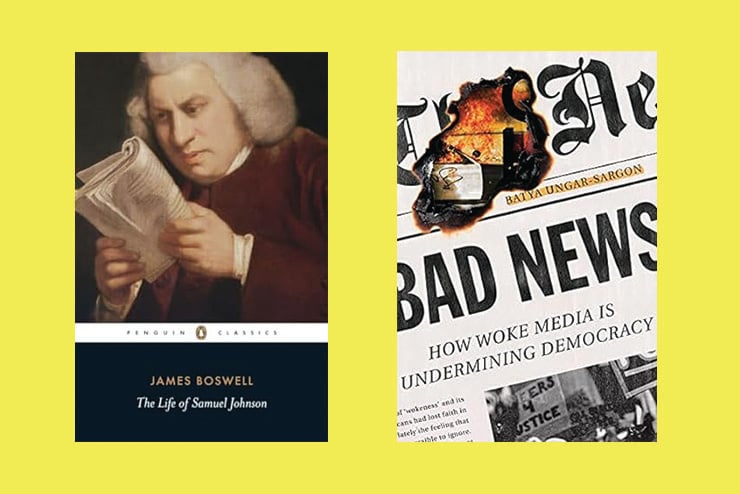
I’m a graduate of a Northern Virginia public high school, then named after a Southern Civil War general and subsequently renamed to avoid offense to the sensitive who eschew reminders of enslavement. The heroes and heroines of my class were the football players and the cheerleaders, and there was little knowledge or appreciation of the pleasures of the intellect. The rest of my life has been spent trying to compensate for that deficiency.
As my paleoconservative sensitivities have grown, I’ve striven mightily to acquire what once passed for the literary accoutrements of an educated person. Fortunately, I have a sister who teaches creative writing. For the last few years, she and I have been tackling various classics, having worked our way through all of Shakespeare, all of Proust, several of the great Victorian novels, and, most recently, James Boswell’s Life of Samuel Johnson (1791). We’ve been joined in this latest effort by another sister, a committed progressive, who is doggedly reading Boswell as a joyful act of hate since Johnson ought to be regarded as the patron saint of the Right.
Almost unread today, Samuel Johnson dominated the literary life of his time to such an extent that the second half of the 18th century in England was often referred to as “The Age of Johnson.” He was the leading critic and lexicographer of his era, wrote the first great dictionary of the English language (most recently used to good effect by the late Supreme Court Justice Antonin Scalia), penned a splendid novel of morals, a brilliant analysis of Shakespeare, and countless periodical pieces displaying subtle wit and learning.
Powerful as his written works were, however, it was his ability as a conversationalist that was even more dazzling, and that is what was recorded by Boswell in what seems to be universally regarded as the greatest biography ever written. The book is something of a bromance, as the young aristocratic Scottish barrister, Boswell, reveals his decades-long admiration for and continuing enlightenment from Johnson, recording Johnson’s utterances verbatim and superbly capturing his complex moods and profound philosophical reflection.
Boswell reports that Johnson, a huge, ursine man troubled with a variety of physical and mental oddities, had the eccentric appearance of an escaped lunatic but was possessed of unparalleled wit and charm. The moment he spoke, his interlocutors were entranced. Boswell’s Life of Johnson is a repository not only of repartee but also a sparkling defense of religion, hierarchy, virtue, charity, and morality. It is a treasury of timeless truths and a ray of inspiration in our dark age.
—Stephen B. Presser

Mainstream news is massively biased, argues Batya Ungar-Sargon. “No kiddin’!” comes the chorus. But it is perhaps not quite what you think. The politics of the bias are secondary and, in Ungar-Sargon’s view, less crucial than the way the bias is driven by status privilege and class hatred of the non-elite.
Ungar-Sargon believes that what has happened in mass news media is a long-term abandonment of the popular classes and their concerns. Media producers relentlessly pursue social status by courting elite audiences. This dangerously excises a huge chunk of the American demographic from the public sphere.
Ungar-Sargon provides a brief history of the development of print news media in the U.S., carefully describing its early populist characteristics. Joseph Pulitzer and his newspaper, the New York World, get particular attention. Ungar-Sargon makes much of the World’s “inclusive” concentration on issues of concern for the poor immigrant classes pouring into New York City during the late 19th and early 20th centuries.
After Pulitzer’s passing, a status revolution in journalism away from the interests of the popular classes began. Walter Lippmann’s case for journalistic objectivity helped inspire the emergence of journalism schools. But these schools produced not journalistic truth-tellers but status-seekers courting the approval of audiences of the same social class to which they belong.
By the end of the 1970s, journalists were an elite liberal class with values out of touch with those of the mass of American society. Nearly all are irreligious; they unquestioningly support affirmative action, and they align unproblematically with almost every major aspect of the sexual revolution of the 1960s and 1970s.
The ongoing online revolution of news media has not “democratized the news,” as the new media would have it. The advent of Twitter/X, Vox, and similar sites has simply skewed news still more in the direction of a young, upper-class, educated, and very leftist demographic.
Ungar-Sargon works hard to show she is not a fan of contemporary right-wing and populist news media. Such media is, she is eager to point out, sometimes “outright racist,” though the examples she musters do not make a strong case. This perspective makes it more difficult to dismiss her as “far-right,” which is the phrase invoked by the media when their systemic prejudices are criticized.
—Alexander Riley

Leave a Reply